Last updated on November 24th, 2024
Featured image: Have you met someone online? Use these tips to protect yourself. | Photo by astakhovyaroslav on Envato
Tips for safe online dating
By Carolyn Ray
The world of online dating can be intimidating, particularly for women of a certain age. In 2021/22, 323 million people worldwide used dating apps and most are looking for a romantic relationship. According to Forbes, there are over 8,000 online dating websites, the pandemic has driven the digital matchmaking industry to new heights.
As mature women, we want to be cautious when engaging in online dating, especially knowing that 41% of Americans have personally experienced some form of online harassment. (Source: Pew Research, The State of Online Harassment). Engaging in a digital space can have many of the same issues as in a physical environment: harassment, discrimination, threats and stalking.
How to avoid issues with online dating and other forums
We asked women’s safety expert Tracey Breeden, former VP, Head of Safety and Social Advocacy at March to share her thoughts on how to avoid online harassment. Previously, Breeden oversaw Match Group’s trust and safety policies and initiatives across its global portfolio of 15 dating products and was previously at Uber as its first-ever Head of Women’s Safety and Gender-Based Violence Operations.
Whether you’re embracing online dating or participating in online forums and groups, Breeden has six recommendations to protect yourself. It comes as no surprise that several of these are aligned with our recommendations for solo travellers, starting with the very first tip.
1. Trust your intuition
Across the board, online and in real life, if you feel something is off you have to trust your intuition, Breeden says.
“It’s wired into us, just like animals. It’s just a matter of following that voice.”
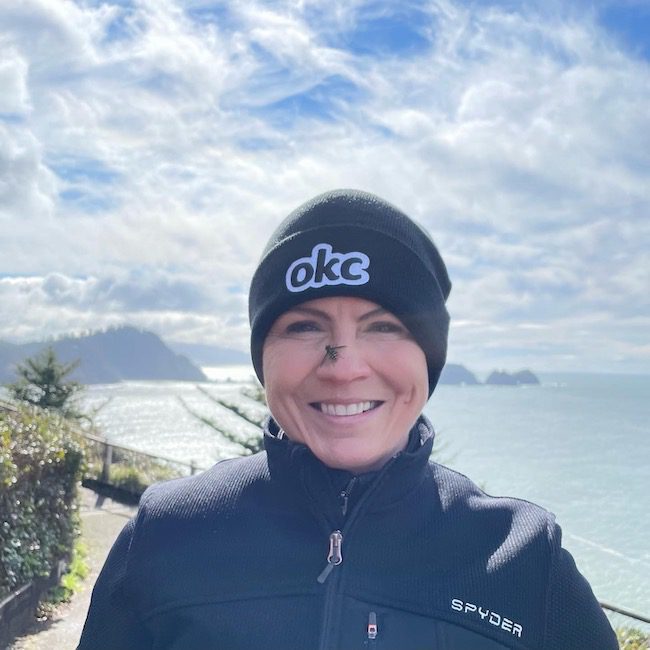
Tracey Breeden, former VP, Head of Safety and Social Advocacy at Match
2. Be very sensitive about sharing personal information
When using online dating websites, very careful about sharing your personal information, whether you share it on a platform or you’re sharing it with somebody you’re engaging with. This goes for everything from Facebook groups to chats on apps.
Breeden recommends thinking twice if you are being asked for phone numbers.
“How many times have you been asked by somebody you’re engaging with to leave the platform and go to another platform to share your information or go to a link that takes you to a website that asks for money?” she asks.
3. Test the boundaries of new relationships
Breeden says that those with ill intentions show up on digital platforms in the same way they show up in real life. She recommends testing boundaries early on to see how people respond when you say ‘no’ to them.
“What I’ve found is that people — and this is with any kind of abusive cycle — who violate your boundaries in a small way will eventually violate them in a big way,” she says. ”How do they respond when you say no? Do they respect your ‘no’ or do they try to get you to a yes? Some of these people may be very charming and they may be very nice. But then they use charm, then they may transition to fear.”
4. Stay on the platform
Breeden sees behaviour where people try to get women off online dating apps quickly and take them to another site or ask them to click on another link. Don’t do it, she advises.
“They might say, ‘I need help’ or, ‘Can you help me just a little bit’ and then those requests get bigger and they escalate, possibly into requests for money,” she says.
Learn how women can be seduced and swindled, watch Netflix’s Tinder Swindler.
Editor’s note: this tip applies to many situations, including booking accommodations. Recently, I had a problem with an Airbnb in Mexico, The owner tried to convince me to communicate with her on WhatsApp. Instead, I voiced my concerns on the Airbnb platform, which led to a full refund and removal of her property from Airbnb. Once you go off platform, the company can’t help you.
5. Meet on video before you meet in person
Traditionally, we might think that only older people are scammed. Breeden says it’s actually happening to young people too, through different types of scams, from romance to confidence scams.
“If you’re thinking about meeting this person in-person, get them on a live video to confirm that this is the person that you’re actually speaking to or engaging with,” she recommends.
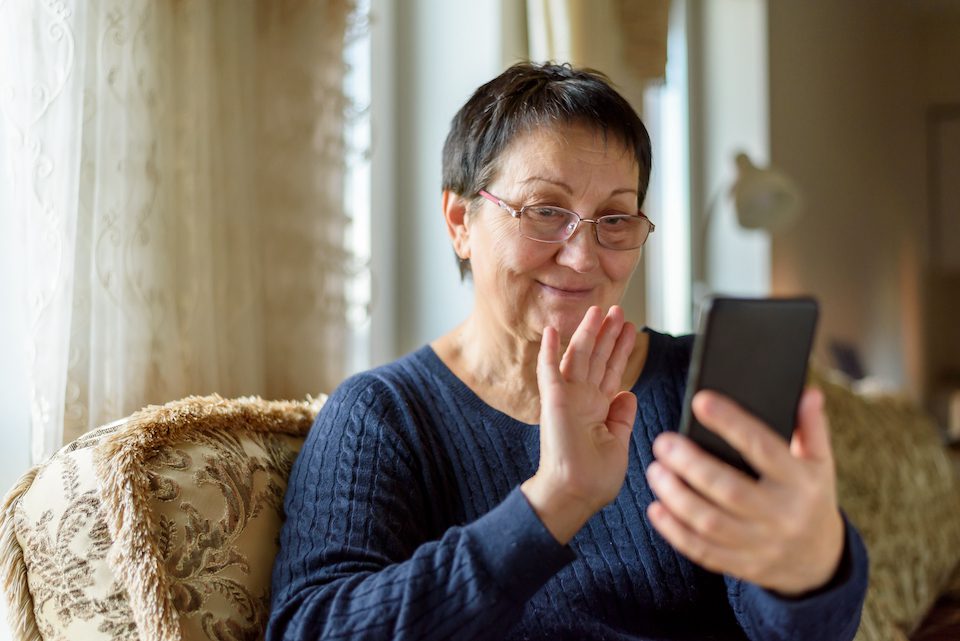
When using online dating apps, Breeden suggests meeting over a video call before meeting in person / Photo by Twenty20photos on Envato
6. Report harassment
“A lot of people don’t report,” she says. “Reporting— it’s important because we have the ability to ban that account within the Match Group umbrella across over 15 online dating apps. A lot of people don’t think reporting will make a difference but it will if we get that information, particularly in our communities where we can take action on it. “
Breeden acknowledges the shame and guilt when something does happen, but also emphasizes that these things can happen to anyone. For solo travellers, she recommends consulting NO MORE, a non-profit organization that provides a global directory of resources to report harassment in every country around the world. You can find it here.
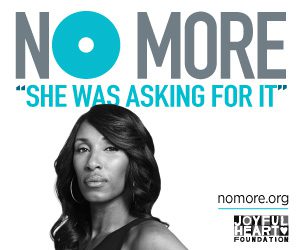
Find resources and tools to combat harassment on the NO MORE directory here.
More Tips to Keep You Safe on the Road
Staying Safe in a Digital World: How Women Can Protect Online Privacy
Advancements in artificial intelligence (AI), facial recognition, wearable technology and apps are making it easier for strangers to learn personal details about us – without our consent.
When Something Goes Wrong: What to Do if You’re Injured While Travelling
Anything can happen on a vacation. Here are some first-hand tips for women to plan for an unexpected injury.
JourneyWoman Webinar: Women’s Safety and Cybersecurity on November 19, 2024
Join our panel of experts on November 19 to learn how to protect yourself against cybersecurity at home and while traveling.

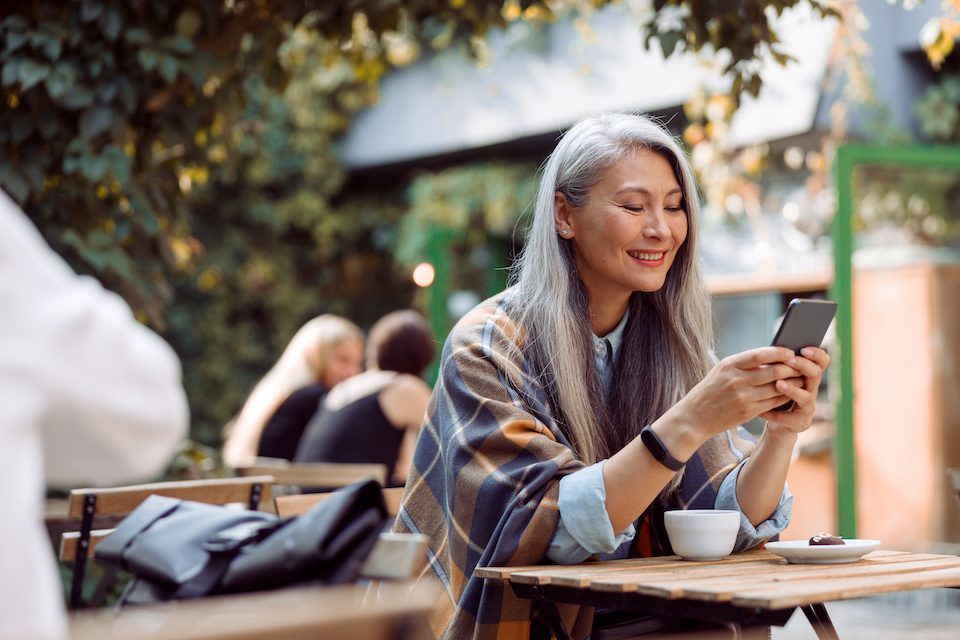



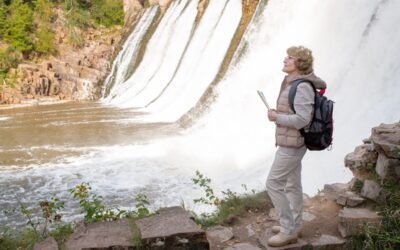

0 Comments
We always strive to use real photos from our own adventures, provided by the guest writer or from our personal travels. However, in some cases, due to photo quality, we must use stock photography. If you have any questions about the photography please let us know.
Disclaimer: We are so happy that you are checking out this page right now! We only recommend things that are suggested by our community, or through our own experience, that we believe will be helpful and practical for you. Some of our pages contain links, which means we’re part of an affiliate program for the product being mentioned. Should you decide to purchase a product using a link from on our site, JourneyWoman may earn a small commission from the retailer, which helps us maintain our beautiful website. JourneyWoman is an Amazon Associate and earns from qualifying purchases. Thank you!
We want to hear what you think about this article, and we welcome any updates or changes to improve it. You can comment below, or send an email to us at [email protected].